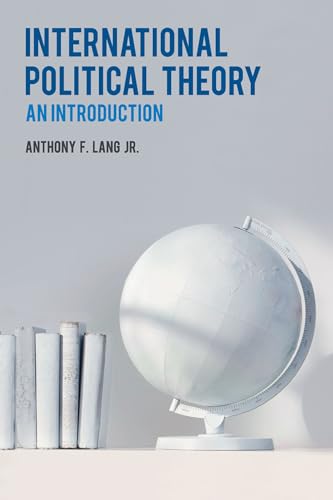Evaluating war through ethics with the Ethical Decision Assessment Framework
Commanders on the battlefield face a wide range of complex decisions. While military planners can draw on decades of precedent to inform their choices in some situations, other scenarios are much more ‘grey’ – calling for new guidelines in military decision-making.
Professor Anthony Lang of the School of International Relations has helped to develop the Ethical Decision Assessment Framework (EDAF): a model for advising military leaders based on the philosophy of virtue ethics. Drawing on research that uses philosophy to evaluate military decisions, the EDAF offers a new tool that can improve the decision making of military leaders prior to and in the midst of combat situations.
Research background

One of Lang’s areas of research is the just war tradition, a moral and political tradition of thought to evaluate the use of military force. Differing from legal or policy evaluations of war, the just war tradition adopts a historical lens to consider the philosophical origins of various war conventions that have come to guide modern warfare scenarios.
One of these philosophical influences is virtue ethics, an established philosophical approach to ethical decision making about which Lang also researches. While other approaches emphasise duties or rules (deontological ethics), or the consequences of actions (consequentialism), virtue ethics focuses on moral character as a basis for ethical decisions. Drawing from the Ancient Greek philosopher, Aristotle, these virtues can be either ‘intellectual’ or practical. Critical to virtue ethics is balancing these virtues to pursue a reasoned ‘middle ground’ in practical ethical approaches. Lang’s research has investigated how politics and ethics can be linked together through virtue ethics, in publications such as ‘Regulating Weapons: An Aristotelian Account’ (2023) and ‘Constructing Universal Values? A Practical Approach’ (2020).
Consulting work
Since 2019, Lang has applied this research background as a consultant on a series of projects funded by the Defence Science and Technology Laboratory (Dstl), an executive agency of the Ministry of Defence.
His first case, running from 2019 to 2021, was titled ‘Insights from Philosophy and Ethics to Guide Future Command and Control.’ The goal of this project was to guide decision makers in command-and-control situations in which usual procedural ‘rules’ were unclear or could not apply. Using a virtue ethics approach, he helped to develop an alternative ethical framework for understanding command and control situations, sharing his insight in a final report to DSTL.
In 2021, he followed this case with a ‘Study on Conflict-related Legal, Ethical and Moral Perspectives (or “Norms” and the Conflict-related Normative Landscape).’ In this project, he investigated the potential legal, ethical, and moral implications of emerging technologies such as cyber warfare, AI and robotics, social media and information warfare, and outer space governance. Through comparing UK norms around these emerging fields with those of adversaries and allies, Lang aimed to shed light on how virtue ethics could be a consistent guiding approach through areas of warfare that have less established norms to assist military planners through unprecedented scenarios.
Ethical Decision Assessment Framework: EDAF
Building on these previous projects, in 2021 Lang was invited to be part of a third project: ‘Virtue Ethics Concept Demonstrator for Military Planners.’ It was during this time that Lang helped to develop the Ethical Decision Assessment Framework: a model useable by military planners that incorporated virtue ethics – particularly its focus on the ‘middle ground’ – to help in planning and executing military operations.
Ambiguous conflict scenarios pose endless questions to military planners and have significant stakes for escalating or defusing land warfare. For instance, when gathering background information on a situation, deciding which sources to use for research – in other words, evaluating intellectual authority – can have major consequences if the source is biased or unreliable. Planners face questions of whether to use research materials solely from established authorities like the Ministry of Defence, or seek alternative explanations.
EDAF names and defines several approaches to war scenarios through the lens of virtue ethics. For instance, one approach to determining intellectual authority may be the ‘casual’ approach: utilising institutionally accepted voices of authority, without considering alternative approaches or holding any skepticism toward those traditional authorities. On the other side of the spectrum is a ‘dismissive’ approach, in which planners disregard traditional sources of authority (such as academics) and their associated practices (such as scientific method, or published research). Virtue ethics informs an ideal middle ground of the ‘authoritative’ approach, in which planners recognise the value of traditionally authoritative sources but maintain a critical eye and consider alternative sources of knowledge (such as cultural knowledge) as well. In this and countless other cases, by providing military planners with a tool to evaluate their decisions, the EDAF can have an enormous impact on the consequences of military planners’ decisions in the field.
In 2022, EDAF was tested in a war game scenario at the Maritime Warfare Centre in Fareham, England. Its participants, including observers from military command, officers from the Ministry of Defence, and several NGOs, all expressed overall support for the project. Informal feedback from participants suggest that the EDAF enabled them to evaluate their actions where law and policy remained unclear.
EDAF is a significant tool with vast implications, which Lang is continuing to expand on in his upcoming consultancy work. For instance, a new project seeks to understand how ‘narratives of grievance’ can be addressed using the EDAF, examining the ethics of narrative and the concept of justice after war (‘jus post bellum’). As these and other projects continue to investigate the uses and impacts of EDAF and virtue ethics, military planners and civilians alike should take note of its potential for transforming the landscape of war.
